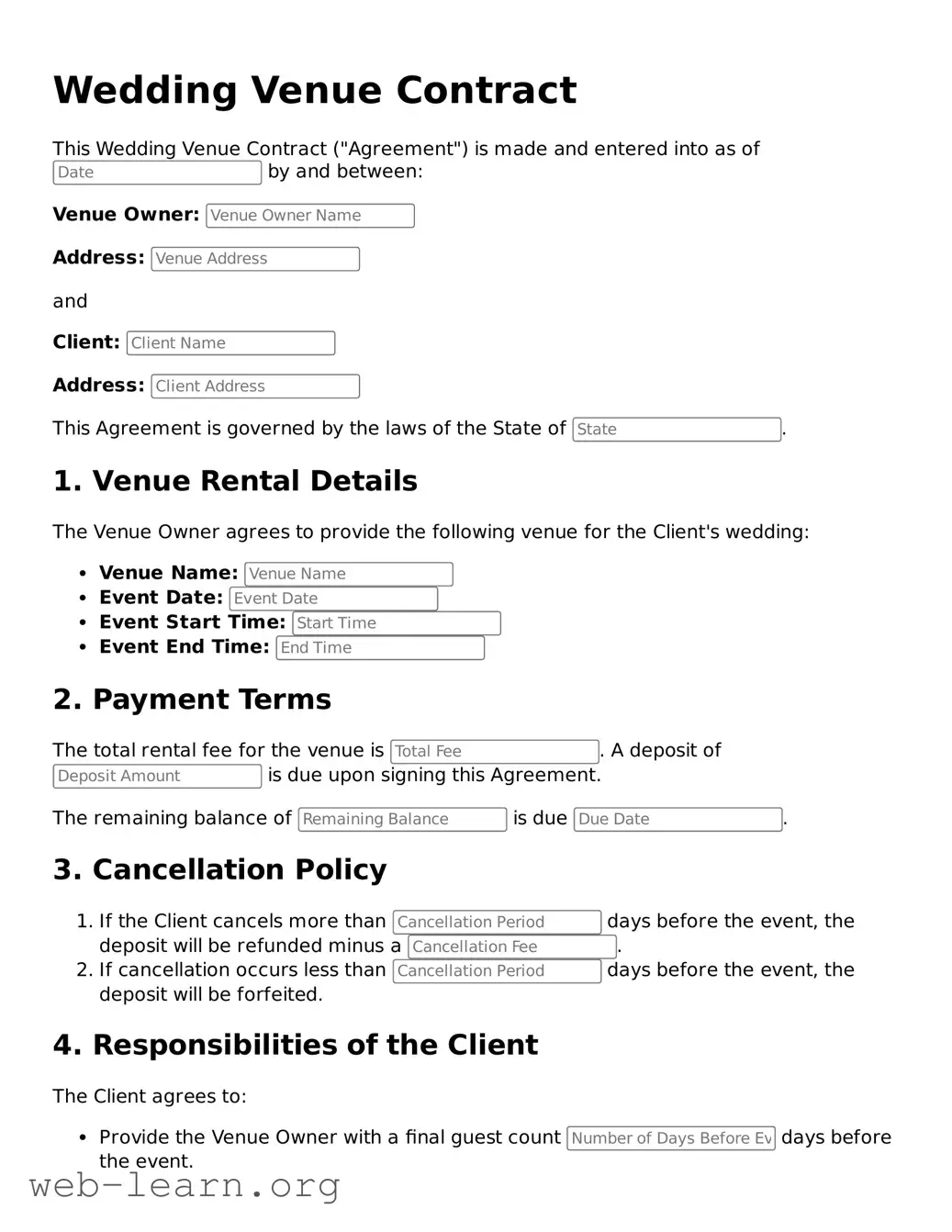Attorney-Approved Wedding Venue Contract Template
A wedding venue contract is a legally binding agreement between a couple and a venue for hosting their wedding. This document outlines essential details such as the date, rental fees, and specific terms related to the use of the property. Understanding the contract is crucial for ensuring a smooth and successful celebration.
